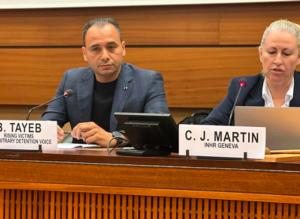
U.S. Court Links Civil and Criminal Cases Against Gautam Adani in Bribery Investigation
Indian billionaire Gautam Adani is facing indictment by the U.S. Department of Justice (DOJ) over allegations of orchestrating a multi-million-dollar bribery scheme to secure favorable solar energy contracts in India. A recent ruling by a New York court has determined that both the civil and criminal cases against Adani and his associates are related and will be overseen by the same judge.
The order, issued by Magistrate Judge Vera M. Scanlon of the U.S. District Court for the Eastern District of New York, consolidates three cases—USA v. Adani et al., Securities and Exchange Commission (SEC) v. Adani et al., and SEC v. Cabanes—under the jurisdiction of District Judge Nicholas Garaufis to streamline judicial proceedings and prevent scheduling conflicts. The ruling aims to ensure judicial efficiency and consistency in handling allegations that span securities fraud, wire fraud, and violations of the Foreign Corrupt Practices Act.
Adani Group Denies Allegations
In response, the Adani Group has strongly denied the allegations, calling them “baseless.” A company spokesperson emphasized, “We uphold the highest standards of governance and compliance across all jurisdictions. We will pursue all available legal remedies.”
The company also cited a statement from the U.S. DOJ, which clarified that “the charges in the indictment are allegations, and the defendants are presumed innocent unless and until proven guilty.”
Adani Group maintains that it has always conducted its business operations within the framework of international laws and regulatory standards. It has assured its investors, stakeholders, and employees that it will vigorously defend its reputation and business interests in the ongoing legal proceedings.
Criminal Charges and SEC Investigation
The SEC has charged Gautam Adani, his nephew Sagar Adani, and Azure Power Global Ltd. executive Cyril Cabanes with securities fraud linked to a $265 million bribery scheme. Additionally, the U.S. Attorney’s Office for the Eastern District of New York has unsealed criminal charges against multiple individuals, including Vneet S. Jaain, Ranjit Gupta, and Rupesh Agarwal, for their alleged roles in a fraudulent scheme that deceived U.S. investors and financial institutions.
The indictment accuses the defendants of conspiring to commit securities and wire fraud, with some also charged under the Foreign Corrupt Practices Act for their involvement in bribery schemes related to large-scale solar energy projects.
According to U.S. prosecutors, the scheme involved falsified financial statements, misleading public disclosures, and illicit payments made to Indian officials in exchange for preferential treatment in awarding solar energy contracts. The alleged actions compromised market transparency and misled global investors, causing significant financial harm.
International Legal Proceedings Underway
As part of its investigation, the SEC has formally requested assistance from India’s Ministry of Law and Justice under the Hague Service Convention to serve a summons to Gautam and Sagar Adani. India’s Union Law Ministry has since directed a district court in Ahmedabad to carry out the summons, marking a critical step in international judicial cooperation.
Legal experts indicate that the summons does not pose an immediate extradition risk for Adani. However, if the Indian authorities process and deliver the summons, Adani may be required to respond in U.S. court proceedings, which could influence the broader investigation and any potential legal actions taken against him.
Environmental and Domestic Legal Challenges
Separately, Adani Group faces mounting legal scrutiny in India. The company is currently defending itself against environmental allegations before India’s National Green Tribunal, with claims that its $2 billion power plant project in Uttar Pradesh was initiated without proper environmental clearance. The project has drawn criticism from environmental activists who argue that it threatens local ecosystems and wildlife habitats. The Adani Group has refuted these allegations, asserting that the land in question is not classified as forest land and that all necessary regulatory approvals have been obtained.
In a related environmental controversy, Adani’s infrastructure projects have faced resistance in Australia and India due to concerns over carbon emissions, deforestation, and coastal erosion. Protesters and advocacy groups have repeatedly challenged Adani’s expansion efforts, leading to delays and legal battles in multiple jurisdictions.
Furthermore, in a separate case, the Bombay High Court has recently dismissed charges against Gautam and Rajesh Adani in a Rs 388 crore market fraud case, providing relief to the company amid its legal battles. The case, which involved allegations of stock price manipulation and regulatory violations, was dismissed after the court found insufficient evidence to proceed with the charges.
Stock Market Impact and Investor Sentiment
The legal challenges have significantly impacted Adani Group’s market performance. Since the beginning of FY25, Adani Group stocks have plummeted by up to 48%, wiping out Rs 3.4 lakh crore in market capitalization. Adani Green Energy has been among the hardest hit, with nearly half of its value erased.
Market analysts attribute the sharp decline in Adani Group’s stock prices to heightened investor concerns over regulatory scrutiny, legal risks, and broader global economic uncertainties. Some financial experts believe that the company’s future market performance will depend heavily on the resolution of these legal issues and its ability to rebuild investor confidence.
Looking Ahead
As legal proceedings unfold across multiple jurisdictions, the Adani Group remains under intense scrutiny from regulators and investors worldwide. With the New York court consolidating its criminal and civil cases, the coming months will be pivotal in determining the future of Adani’s global business empire.
The legal battle could have far-reaching implications for India’s corporate governance landscape and foreign investor confidence in the country’s energy and infrastructure sectors. Industry experts will be closely watching how Adani Group navigates these legal and regulatory challenges while maintaining its position as a leading player in the global market.

